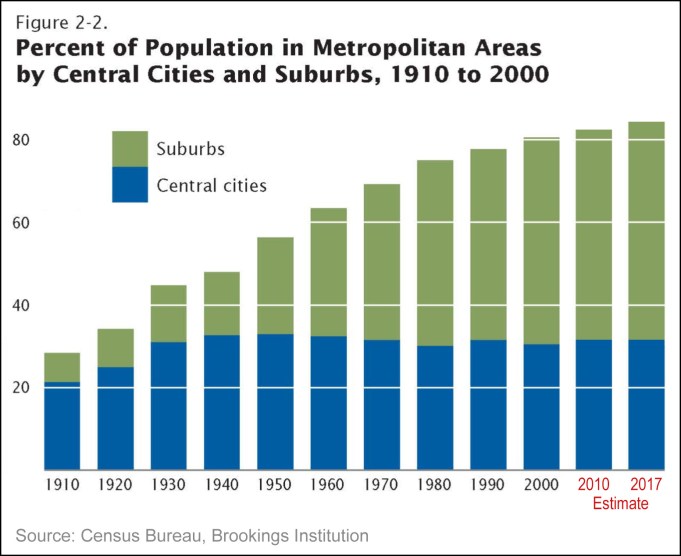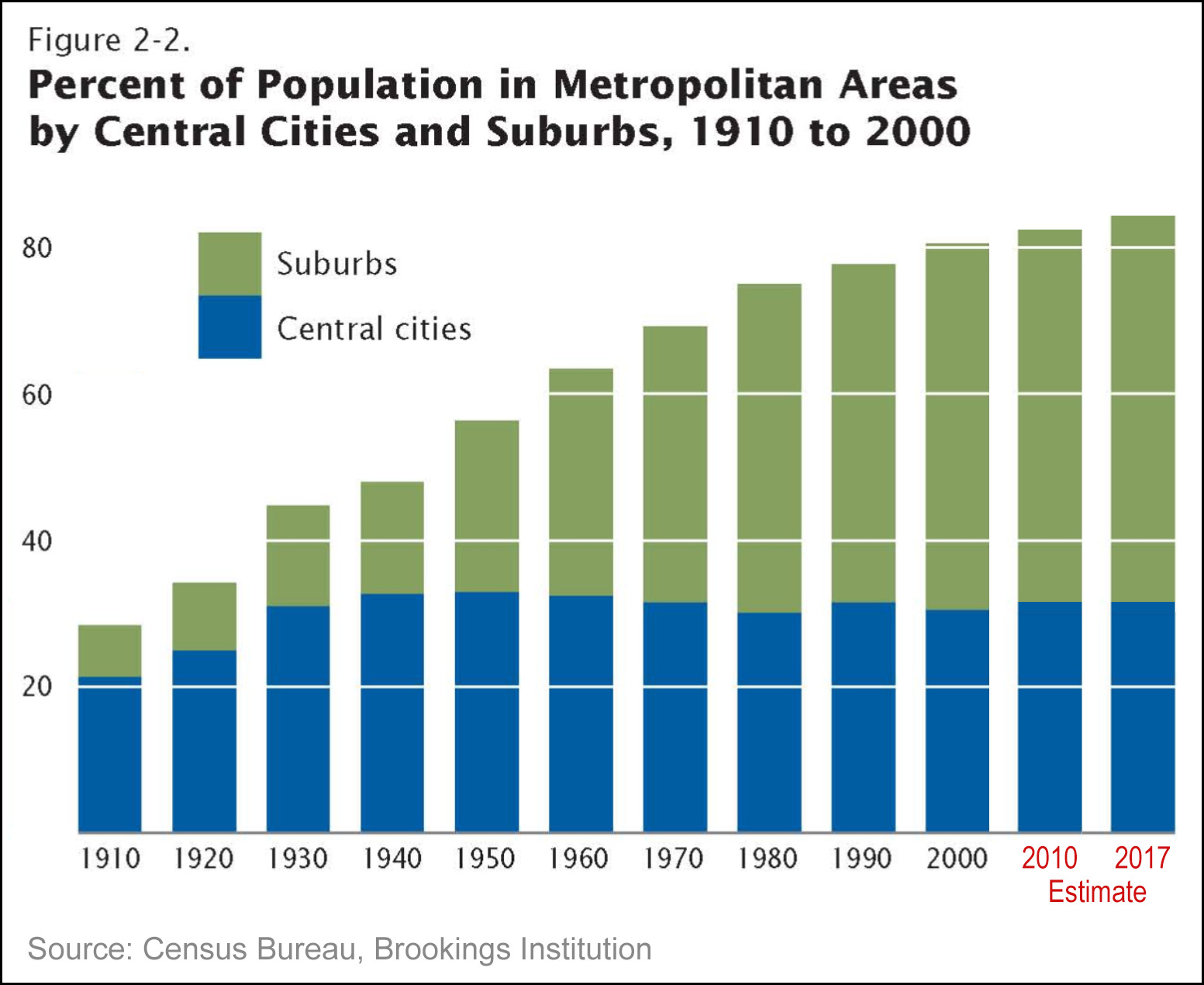
The Wall Street Journal reports that city-loving millennials are now decamping to the burbs:
“The back-to-the-city trend has reversed,” said William Frey, a demographer at the Brookings Institution, citing last year’s census data. Millennials, the generation now ages 23 to 38, are no longer as rooted as they were after the economic downturn. Many are belatedly getting married and heading to the suburbs, just as their parents and grandparents did.
Is this true? Let’s look at the data:

The figures from 1910-2000 are from the Census Bureau. The figures from 2010-17 are derived from a Brookings estimate of urban and suburban population growth.
If you click on the Brookings link, it shows that the growth of central cities did spike a bit from 2008-14. But the spike was modest, and even at its height the suburbs were still growing faster.
In other words, there never really was much of a back-to-the-city trend in the first place. The central city share of the population rose to about 30 percent by 1940 and has stayed there ever since. Suburbs have been growing since the ’50s and that growth has also continued steadily ever since. With only tiny variances, the suburbs have been gaining population for 70 years relative to cities (and rural areas), and that relative growth has slowed down only slightly in the past few decades—and only because the suburban share was so big that it couldn’t really get much bigger without taking over the entire country.
The myth of the urban millennial has been driven by two things. First, there really was a smallish relative increase in urban population for a few years. But that increase was barely visible in the long-term statistics. The bigger reason by far is that on Twitter and other social media sites used by journalists, millennials are represented almost exclusively by the highly verbal and highly educated. And guess what? These folks lean heavily liberal; they like living in big cities; and they complain endlessly about not being able to afford it. This has naturally left a strong impression that most millennials prefer the urban life and has given life to an entire genre of stories suggesting that the cost of city living has gotten out of control—something that’s true only for a very small slice of American cities.
But overall, millennials don’t prefer cities any more than any previous generation. Nor have they given up cars, which they own at about the same rate as every generation has since the ’70s. When they grow up and have kids they’ve mostly moved into the suburbs and bought SUVs and minivans, just like their parents and grandparents did.















